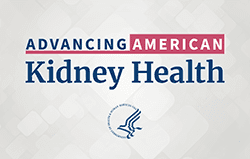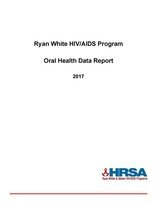
Trump Administration Proposes New Rules to Increase Accountability and Availability of the Organ Supply
 The U.S. Department of Health and Human Services (HHS) today took major steps to increase the availability of organs for the 113,000 Americans on waitlists for lifesaving organ transplants – 20 of whom die each day. As directed by President Trump in his July 10 Executive Order on Advancing American Kidney Health, the Centers for Medicare & Medicaid Services (CMS) is issuing a proposed rule to change the way organ procurement organizations (OPOs) are held accountable for their performance, and the Health Resources and Services Administration (HRSA) is issuing a proposed rule to remove financial barriers to living organ donation. “Our broken system of procuring organs and supporting kidney donors’ costs thousands of American lives each year,” said HHS Secretary Alex Azar. “President Trump sees kidney disease as a health challenge where we can make a major impact, and his Advancing American Kidney Health initiative, including today’s announcements, will transform the lives of American kidney patients, who have been neglected for too long. Many organ procurement organizations do wonderful work, but some aren’t performing nearly as well as they could. We’re going to stop looking the other way while lives are lost and hold OPOs accountable. On living donations, we’re going to dramatically expand support for living kidney donors, so that Americans who wish to be generous living donors don’t face unnecessary financial barriers to doing so.” Read the HHS press release. View the HRSA proposed rule fact sheet (PDF - 67 KB). |
Holiday Greetings From Administrator Tom Engels
 In a holiday message to employees, HRSA Administrator Tom Engels expressed thanks for the agency's achievements this year and looked forward to a productive 2020. "Thanks to everyone's hard work, we have awarded grants to improve health outcomes for women before, during, and after pregnancy; and to reduce racial and ethnic disparities in rates of infant death; and combat the nation's opioid crisis through HRSA-funded health centers. Through training and supporting health care clinicians and targeting rural communities in particular, we have also worked to help implement rural residency programs and maternal care in rural America." "It's clear that 2020 will be another great year for HRSA to continue our mission to improve health care for people who are economically or medically vulnerable and geographically isolated. Thank you for all that you have done and will do, and I hope you all have a wonderful holiday season." See our 2019 Year In Review infographic (PDF - 1.3 MB). |
Call For Abstracts: 2020 National Ryan White Conference on HIV Care & Treatment
 Time is running out to submit an abstract for our 2020 National Ryan White Conference on HIV Care & Treatment. The call for abstracts closes tomorrow, December 20. The conference takes place August 11-14, 2020, at the Marriot Marquis Washington, DC. The theme is 30 Years of Innovating Care, Optimizing Public Health, Ending the HIV Epidemic. The National Ryan White Conference is the largest national conference for comprehensive HIV care and treatment providers, Ryan White HIV/AIDS Program (RWHAP) recipients, federal, state and local stakeholders, and people with HIV. To stay on top of all conference news and important updates, follow us on Twitter. |
National Health Service Corps Loan Repayment Program Award Preference
 Health professionals interested in applying to our National Health Service Corps (NHSC) Substance Use Disorder Workforce Loan Repayment Program or Rural Community Loan Repayment Program next spring can receive award preference by completing free MAT training and obtaining the DATA 2000 waiver. Eligible clinicians can receive up to $75,000 for the SUD Workforce LRP or up to $100,000 for the Rural Community LRP in exchange for three years of service in underserved and rural areas of the nation. |
New Policy Adopted to Improve Kidney, Pancreas Distribution
 The Board of Directors of the Organ Procurement and Transplantation Network approved a new allocation policy for matching kidney and pancreas transplant candidates with organs from deceased donors at their December 3 meeting. The policy establishes new distribution areas based on donor location and is projected to increase equity in transplant access for candidates regardless of where they live or list for a transplant. |
HRSA Releases Inaugural Ryan White HIV/AIDS Program Oral Health Data Report
 HRSA's HIV/AIDS Bureau this week released the first publication of national data on Ryan White HIV/AIDS Program (RWHAP) oral health programs, including: RWHAP Parts A-D oral health services; RWHAP Part F Dental Reimbursement Program and Community-Based Dental Partnership Program; and RWHAP Part F AIDS Education and Training Center training events on oral health care. The inaugural Ryan White HIV/AIDS Program Oral Health Data Report, 2017 provides a deeper look at service utilization, demographic, and socioeconomic factors among clients served across RWHAP oral health programs and the characteristics of RWHAP-funded organizations that deliver oral health services. The report also includes information about trainings delivered to oral health providers to treat people with HIV and the providers trained. View the report (PDF - 1 MB). |
Newly Released 50-State Scan on the Non-Licensed Substance Use Disorder (SUD) Workforce
 Through HRSA’s cooperative agreement with National Organizations of State and Local Officials (NOSLO), the National Academy for State Health Policy (NASHP) conducted a comprehensive 50-state scan of how each state Medicaid program pays for and oversees non-licensed SUD staff. Learn how state Medicaid agencies are developing and deploying a growing workforce of peers, counselors, and other qualified staff to supplement licensed SUD provider capacity. |
Study Finds Only One-Third of States Have Publically Available Guidelines for Levels of Maternal Care
 A recent study led by HRSA staff found differences in the number of states with publicly available guidelines for levels of maternal care, and the number of states incorporating maternal care criteria. In 2015, the Society for Maternal-Fetal Medicine and the American College of Obstetricians and Gynecologists developed a classification system for levels of maternal care. They introduced standardized criteria and uniform definitions to enable monitoring of risk-appropriate care and evaluate its impact on health outcomes. However, the current study found that only one-third of states have publically available guidelines that incorporate these criteria for levels of maternal care. A system of risk-appropriate maternal care may have the largest potential impact on preventing pregnancy-related deaths in the United States. This study highlights the need for further dissemination and implementation of perinatal guidelines to ensure women receive care in facilities that align with their risk. Read about HRSA’s work to address maternal care. Read the Journal of Women’s Health abstract. |
Telehealth: An Opportunity for State and Territorial Health Agencies to Improve Access to Needed Health Services
 Through support from our National Organizations of State and Local Officials cooperative agreement, the Association of State and Territorial Health Officials (ASTHO) published Telehealth: An Opportunity for State and Territorial Health Agencies to Improve Access to Needed Health Services in the Journal of Public Health Management and Practice. The article describes the results of a 2019 telehealth survey ASTHO administered to all 59 state and territorial health officials, which assessed the landscape of telehealth activities, priorities, and technical assistance needed within state and territorial health agencies. It then provides strategies states can use, including leveraging partnerships and improving broadband access, to expand access to health care services and enhance population health through telehealth. |

































No hay comentarios:
Publicar un comentario